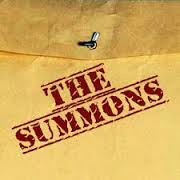 Filing for divorce in California requires at least the following two key forms: a divorce petition and a divorce summons (form FL-110). The petition starts the legal divorce case. It may include what the filing spouse (the petitioner) is asking to receive from the court. The divorce summons is easy: it requires only name, address, court and case number information.
Filing for divorce in California requires at least the following two key forms: a divorce petition and a divorce summons (form FL-110). The petition starts the legal divorce case. It may include what the filing spouse (the petitioner) is asking to receive from the court. The divorce summons is easy: it requires only name, address, court and case number information.
When you are served with divorce papers in California, you receive these two forms. You now become the respondent.
Divorce Summons
The divorce summons is a message to you from the court letting you know that the divorce petition has been filed. It also warns you of the possibility that if you fail to file a written response within 30 days, the court could grant your spouse what was asked for in the petition.
The back of the divorce summons has some very important restraining orders. These are immediately applicable to both spouses. They are sometimes referred to as ATROs (automatic restraining orders) because they automatically apply to all divorce petitioners and respondents until their divorce is granted. Be sure to read them carefully.
Divorce Summons – Automatic Restraining Orders – ATROs
The automatic restraining orders on the back of divorce summons restrain (prohibit) both spouses from doing the following:
- removing your minor children from the state or applying for a new or replacement passport for them without the prior written consent of your spouse or an order of the court.
- cashing, borrowing against, canceling, transferring, disposing of or changing the beneficiaries of any insurance or other coverage including life, health, automobile and disability that is held for the benefit of the spouses and/or your minor children.
- transferring, encumbering (adding debt to), hypothecating (pledging to a specific purpose), concealing or in any way disposing of any real or personal property (even separate property) without the written consent of your spouse or an order of the court, except in the usual course of business or for the necessities of life.
- creating or modifying a non-probate transfer of property in a manner that affects the disposition of the property (see the divorce summons form FL-110 for further information).
The divorce summons also specifies that you must notify each other of any proposed extraordinary expenditures at least 5 business days prior to incurring them and account to the court for all such expenditures. This doesn’t restrain you from using marital or separate property to pay an attorney to help you or to pay court costs.
Related Posts and Pages:
Divorce Papers
Divorce Forms
Divorce Petition
Divorce Response







